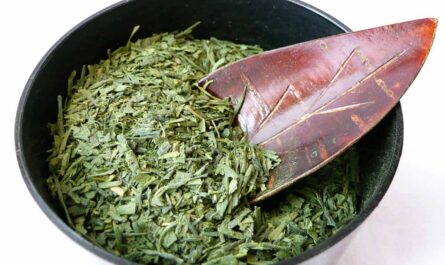What are some of the disadvantages of drinking tea in the morning? While many people enjoy the ritual of starting their day with a warm cup of tea, there are potential disadvantages to this morning habit. First and foremost, the high caffeine content in tea, particularly black and green varieties, may lead to increased anxiety, jitteriness, and disrupted sleep patterns, especially for individuals sensitive to caffeine. Additionally, the tannins present in tea can interfere with the absorption of iron from plant-based foods, potentially impacting individuals with iron-deficiency anemia. In this article, we will discuss some of the major disadvantages of drinking tea in the morning. Keep reading.
Disadvantages of drinking tea in the morning
Drinking tea on an empty stomach may also cause nausea or digestive discomfort for some people, as the tannins can increase stomach acidity. Furthermore, excessive tea consumption, particularly if it’s highly concentrated or too hot, may contribute to dental issues such as enamel erosion and staining. Despite its numerous health benefits, moderation and consideration of individual tolerance levels are crucial when incorporating tea into one’s morning routine to avoid potential adverse effects on both physical and mental well-being. Find below some of the disadvantages of drinking tea in the morning:
1. Potential for Increased Anxiety
In the bustling symphony of morning routines, tea emerges as a protagonist that, paradoxically, may contribute to the crescendo of anxiety. The culprit, once again, is caffeine—a central nervous system stimulant capable of amplifying the resonances of stress. As the morning hustle reaches its zenith, the inclusion of tea into this dynamic may inadvertently elevate anxiety levels. The physiological manifestations of this tandem—jitteriness and nervousness—find a symbiotic relationship with the psychological landscape, particularly for individuals already predisposed to anxiety disorders. Hence, the ostensibly comforting cup of morning tea may not be a panacea but rather an unwitting exacerbator of the psychological tempest that the day’s exigencies may bring forth.
2. Disrupted Hydration Balance
In the intricate choreography of bodily functions, the role of tea takes an unforeseen turn in the delicate balance of hydration. Despite its liquid essence, certain variants of tea, particularly the robust black or verdant green incarnations, wield diuretic properties. This seemingly innocuous attribute translates into an increased frequency of urination, threatening to tip the scales towards dehydration if not counteracted with deliberate hydration strategies. The quest for optimal bodily functions and overarching well-being necessitates a vigilant effort to maintain a harmonious equilibrium in hydration. For avid tea enthusiasts, this underscores the imperative of not merely relying on tea for liquid intake but embracing a complementary alliance with water to satiate the body’s fundamental need for hydration.
3. Pervasive Staining Potential
Delving beyond the immediate spectrum of health considerations, a more subtle but significant facet surface—the potential for pervasive dental staining. This issue stems from the chromogens inherent in tea, agents responsible for endowing it with its luxuriant color palette. Remarkably, these chromogens exhibit a proclivity for adhering tenaciously to the enamel that enshrouds our teeth. The consequences of this predilection become apparent over time, as the regular and, at times, lackadaisical consumption of tea manifests as a gradual, disquieting discoloration of teeth. It’s an aesthetic predicament that prompts contemplation, causing individuals to reassess the habitual nature of their morning tea indulgence.
4. Impact on Iron Levels
For the discerning individuals meticulously tracking their iron levels, the seemingly innocuous morning tea ritual takes on a more intricate dimension. Tannins, prolific within the confines of tea leaves, wield a potent capability— they can act as formidable impediments to the absorption of non-heme iron, predominantly found in the realm of plant-based nourishment. The ramifications of this interaction are particularly pertinent for adherents of vegetarian or vegan diets. These individuals find themselves ensnared in a delicate dance, as the consumption of tea necessitates a discerning evaluation of timing, lest it precipitate a compromise in iron levels and underscore the delicate balance of nutritional adequacy.
5. Financial Strain: Brewing a Costly Cup
Embarking on the daily quest for the quintessential morning tea, whether emboldened by specialty blends or entranced by artisanal varieties, can metamorphose into a substantial financial commitment over the relentless passage of time. The magnetic allure of premium teas, with their nuanced flavors tantalizing even the most discerning taste buds, disadvantages of drinking tea in the morning, paradoxically come hand in hand with a palpable strain on one’s financial reservoir. For those diligently navigating the narrow corridors of budgetary constraints or earnestly striving to optimize their fiscal resources, the daily tea ritual beckons for a sagacious evaluation. Aligning one’s beverage choices with overarching financial goals becomes not merely a matter of preference but a pragmatic consideration, steering the delicate balance between indulgence and financial prudence.
6. Dental Dilemmas
The morning tableau of leisurely sipping tea, an act steeped in tranquility, inadvertently unravels a potential threat to dental fortitude. The intricate interplay of tannins and the inherently acidic nature of tea conspire to erode the enamel guarding our precious teeth. This gradual erosion, though imperceptible in the immediate aftermath of a sip, unfurls a red carpet to a spectrum of dental predicaments. Tooth sensitivity emerges as a silent consequence, echoing the erosion of enamel, while the heightened vulnerability to cavities becomes an unwelcome guest in the dental narrative. The seemingly innocent act of embracing a cup of tea in the morning transforms into a nuanced exercise in oral hygiene, necessitating an added layer of vigilance and care to safeguard the integrity of one’s dental citadel.
7. Potential for Increased Acidity
Embarking on the ritual of commencing your day with a meticulously brewed, steaming cup of tea is a practice embraced by many, providing a sense of warmth and solace. However, hidden within this seemingly benign act lies the potential for an unwelcome consequence – an elevation in stomach acidity levels. This phenomenon is particularly pronounced when tea is consumed on an empty stomach, as the beverage has the propensity to trigger an upsurge in gastric acid production. The repercussions of such a surge extend beyond mere discomfort, venturing into the realm of indigestion. Individuals grappling with pre-existing gastric concerns find themselves in a precarious situation, as the surge in acidity not only intensifies existing symptoms but also disrupts the delicate equilibrium of the digestive system, setting the stage for a cascade of discomfort.
8. Potential for Insomnia
With the sun’s descent, the allure of a tranquilizing cup of tea beckons. Yet, this nocturnal dalliance with the soothing elixir may unwittingly sow the seeds of disruption in the quest for a night of undisturbed repose. It’s the caffeine, though its potency may pale in comparison to its coffee counterpart, that presents a subtle yet consequential challenge. Lingering within the system, the caffeine in tea casts a shadow over the onset and quality of sleep. Consequently, the ostensibly innocuous act of partaking in an evening tea ritual merits careful consideration, especially for those susceptible to insomnia or yearning for an unbroken tapestry of nocturnal rest.
9. Social Implications
The morning tea ritual, an ancient tapestry woven with cultural and social intricacies, inadvertently unfurls a tableau of exclusionary dynamics. Those who conscientiously abstain from or judiciously limit their tea consumption may find themselves adrift in social scenarios dominated by the omnipresence of tea-centric gatherings. This seemingly innocuous yet profoundly pervasive aspect underscores the imperious need for inclusivity within morning rituals. A broader palette of beverage options should be cultivated to ensure these rituals morph into veritable avenues of communal connection rather than unwittingly becoming catalysts for alienation based on beverage preferences.
10. Diuretic Effects on Kidneys
As tea’s diuretic prowess orchestrates an augmented opus of urine production, it simultaneously choreographs a subtle ballet that may pose a choreographed burden on the kidneys. The regular morning infusion of tea, when indulged in significantly, introduces these vital organs to an escalated workload. The delicate equilibrium sought by those with pre-existing kidney conditions or individuals nurturing aspirations of pristine renal health hinges on the fine art of balancing tea’s allure with the well-being of these filtration maestros.
11. Impact on Bone Health
In the multifaceted mosaic of skeletal fortitude, tea emerges as a potential chiaroscuro, casting both shadows and light on bone health. The very tannins that contribute to the kaleidoscope of tea’s flavor may, paradoxically, impede the absorption of calcium. As dawn unfolds and calcium demands ascend, the habitual morning communion with tea could inadvertently contribute to a tapestry of compromised bone density. This contemplation assumes a particular resonance for those standing at the precipice of osteoporosis or endeavoring to buttress their skeletal framework against the relentless march of time.
12. Environmental Impact
Beyond the confines of individual health considerations, the tendrils of the morning tea ritual extend far and wide, entwining themselves with the broader spectrum of environmental repercussions. The tea industry, a tapestry woven with intricate threads of cultivation practices and resource utilization, casts a looming shadow over ecosystems. The echoes of deforestation, habitat destruction, and pesticide use reverberate through the lush landscapes that play host to tea plantations.
For the conscientious consumer, cognizant of their impact on the planet, the choice of morning brew becomes a profound statement. The imperative to opt for sustainably sourced tea emerges as a clarion call, urging individuals to tread lightly on the delicate fabric of ecological balance. A mindful consideration of one’s tea choices beckons, imploring a harmonious coexistence with the environment and prompting a reevaluation of the broader environmental implications woven into the fabric of one’s morning beverage rituals.

13. Potential for Blood Pressure Fluctuations
The ballet between tea and blood pressure is a nuanced performance with antioxidants and caffeine engaging in an intricate pas de deux. While the virtuous antioxidants are often heralded for their cardiovascular serenade, the caffeine content, akin to a crescendo, may elicit transient spikes in blood pressure. For those tethered to the intricate rhythms of hypertension or aiming to calibrate their vascular dynamics, the morning tea ritual demands a judicious approach. It’s a choreography of caution, a measured acknowledgment of tea’s potential to influence the oscillations of blood pressure.
14. Elevated Heart Rate
Tea, often extolled for its antioxidant prowess, unfurls an unforeseen dimension when the tapestry of cardiovascular health is woven into the narrative. The caffeine content, while ostensibly moderate, possesses the latent power to catalyze an accelerated heart rate. This surge can be particularly disconcerting for individuals who harbor a heightened sensitivity to stimulants, potentially culminating in palpitations or a discomfiting flutter within the chest. Hence, the judicious monitoring of tea intake, especially in the morning hours, becomes an imperious mandate for those grappling with extant cardiac concerns or harboring a predisposition towards heightened responses in their cardiac rhythm.
15. Teeth Sensitivity Exacerbation
In the intricate landscape of oral health, tea, revered for its comforting warmth and multifaceted flavors, emerges as a potential arbiter that extends beyond the realms of enamel erosion. Individuals already ensnared within the labyrinth of teeth sensitivity may discover, with a jolt of discomfort, that the temperature and acidity inherent in tea have the unforeseen power to exacerbate their dental distress. This revelation impels a heightened level of awareness for those grappling with sensitive teeth, demanding a comprehensive reassessment of their morning tea ritual. A strategic recalibration becomes imperative, a delicate dance of mitigating potential adverse effects on dental sensitivity while preserving the cherished ritual of morning tea.
16. Influence on Blood Sugar Levels
Delving into the intricate dance of morning tea within the context of blood sugar management reveals a nuanced narrative. Beyond the surface allure of a calorie-free beverage, lies a potential labyrinth fraught with peril, especially for those navigating the precarious realm of blood sugar equilibrium. The unassuming cup of tea, when embellished with sweeteners and accompanying treats, transforms into a deceptively sugary concoction.
This influx of sugar, particularly when divorced from the mooring of a balanced breakfast, emerges as a stealthy saboteur. It instigates rapid spikes and, with equal swiftness, precipitates precipitous crashes in blood sugar levels. The consequences are far-reaching, adversely impacting energy levels and orchestrating a disarray within the delicate ballet of metabolic equilibrium. The morning cup, once viewed as a benign ritual, emerges as a potential provocateur in the intricate symphony of blood sugar regulation.
17. Potential for Tolerance Development
The human body, a marvel of adaptation, harbors the propensity to acclimate to external stimuli, and the habitual infusion of morning tea is no exception. An individual’s physiology, when subjected to the daily ritual of caffeine ingestion, unfurls the intricate tapestry of tolerance development. In the quietude of daily consumption, the once-vivid effects of caffeine may fade into a muted symphony, prompting the body to demand an augmented dosage for the desired state of alertness.
The insidious trajectory of this phenomenon, if left unchecked, entails an unwitting complicity in the escalating demands of the body. The allure of the morning cup loses its initial potency, compelling the unwitting tea enthusiast to increase their intake to reclaim the elusive magic of heightened awareness. This subtle dance with tolerance poses the specter of an inadvertent surge in caffeine consumption and its attendant drawbacks, leaving the individual ensnared in a cycle of escalating reliance.
18. Hindered Nutrient Absorption
In the labyrinth of nutritional intricacies, tea emerges as a paradoxical elixir, possessing both benefits and pitfalls. Its intricate composition, adorned with elements like tannins and polyphenols, unfurls a complex dynamic where benefits are shadowed by potential drawbacks. Foremost among these drawbacks is the tea-induced hindrance in the absorption of pivotal minerals, notably iron and calcium. This interference assumes an ominous character, especially for individuals contending with dietary deficiencies. Unbeknownst to many, the morning ritual of indulging in a cup of tea may unwittingly play saboteur to the body’s innate capacity to assimilate these indispensable nutrients. Thus, for those reliant on their morning cuppa to usher in the day, there exists an unwitting compromise on the nutritional front, underscoring the need for vigilance in dietary choices.
19. Caffeine Overload
The allure of a morning burst of energy, delivered in the form of a caffeine-infused elixir, is a magnetic force that draws many into the ritual of tea consumption. However, within this seemingly innocuous habit lurks the potential for an inadvertent excess – a caffeine overload. Tea, positioned as a source of this stimulating compound, when paired with other caffeinated beverages, unfurls the tapestry of a caffeine surplus. The consequences of such an excess extend beyond the anticipated invigoration, cascading into a realm marked by heightened anxiety, persistent restlessness, and a disconcerting disruption in sleep patterns. What initially promised a rejuvenating start to the day now casts a shadow of unintended physiological consequences, necessitating a delicate balance in caffeine intake for those seeking the perfect morning pick-me-up.
20. Temperature-Related Concerns
While the comfort derived from the warmth of a morning cuppa is undeniable, the tranquility it imparts may veil a host of temperature-related concerns. Consider, if you will, the act of consuming tea at a temperature bordering on scalding, particularly during the early hours when the palate is awakening from its nocturnal slumber. The unsuspecting sipper, eager for the comforting embrace of warmth, may inadvertently subject the delicate tissues of the mouth and esophagus to the searing effects of excessive heat.
The oft-overlooked specter of burns and scalds, inextricably linked to tea consumption, emerges from the shadows, demanding a mindful approach to the ritualistic act of sipping on piping hot elixirs. This cautionary tale serves as a reminder that the pursuit of comfort should not come at the cost of unwittingly inflicting thermal injuries upon oneself, prompting a reconsideration of the temperature at which the morning tea is imbibed.
21. Compromised Absorption of Medications
Navigating the labyrinthine realm of health management reveals a delicate dance between medication and the intricate symphony of bodily functions. The seemingly innocuous act of sipping morning tea unveils a potential conundrum; its constituents may engage in a subtle skirmish with certain medications for absorption supremacy. This not-so-trivial clash may, in turn, usher in a realm of suboptimal efficacy, underlining the indispensable need to seek sagacious counsel from healthcare professionals. It’s a bespoke consultation, a nuanced discussion surrounding the chronology of medication intake and the harmonization thereof with the canvas of dietary habits.
22. Potential for Digestive Discomfort
In the gastronomic ballet performed within our corporeal confines, morning tea might don the costume of an unwitting disruptor. The tannins, those molecular actors within tea, in tandem with its ability to orchestrate the production of gastric acids, form a duet that occasionally transgresses the boundaries of comfort. Those with irritable bowel syndrome (IBS) or harbor other gastrointestinal vulnerabilities may find their morning tea symphony turning discordant. It’s an unexpected revelation, prompting a reassessment of one’s beverage choices and a potential pivot toward a more harmonious digestive cadence. Tea, Coffee, Energy Drinks, Juice, Beverage, Smoothie, and more
23. Risk of Overconsumption
The seemingly innocuous act of savoring morning tea, when examined closely, unravels a potential labyrinth of risks, chief among them being the insidious specter of overconsumption. The ritualistic and habitual nature that often accompanies morning tea imbibing inadvertently paves a perilous path toward overindulgence. The initial sip, an innocuous salve to awaken the senses, may seamlessly transition into a second cup, and then, unsuspectingly, into a third or fourth. This subtle progression poses the insidious threat of a spiraling escalation in caffeine intake, a phenomenon not to be trifled with.
This habitual pattern, like a crafty enchanter, not only weaves a tapestry of disrupted sleep and heightened anxiety but, more nefariously, may foster a subtle reliance on caffeine for essential morning alertness disadvantages of drinking tea in the morning. The unsuspecting consumer, ensnared in the tendrils of this daily routine, may unwittingly find themselves teetering on the brink of caffeine dependence, with potential withdrawal symptoms lurking ominously during the brief interludes when the teacup remains untouched.
Other Interesting Articles
- 16 Buckwheat Tea Health Benefits, Nutrition, Side Effects
- 21 Health Benefits of Drinking Tea in the Evening with Coffee
- 15 Honeybush Tea Health Benefits, Nutrition, Side Effects
- 22 Amazing Health Benefits of Drinking Tea in the Evening
- 18 Benefits of Herbal Tea, Nutrition, Recipes, & Side Effects
- 15 Benefits of Purple Tea, Nutrition, Recipes, & Side Effects
- 14 Benefits of Pu-erh Tea, Nutrition, Recipes, & Side Effects
- 17 Benefits of Yellow Tea, Nutrition, Recipes, & Side Effects
- 13 Benefits of White Tea, Nutrition, Recipes, & Side Effects
- 13 Benefits of Black Tea, Nutrition, Recipes, & Side Effects
- 17 Benefits Of Oolong Tea, Nutrition, Recipes, & Side Effects
- How To Make Shakerato Italian Iced Coffee? 26 FAQs
- 22 Best Masala Chai Recipes You Can Try On Your Own
- Authentic Homemade Indian Chai Best Tea Recipe
- 24 Caffeine in Tea Interesting, Fun, Cool, Amazing Facts
- 13 Types of Teas to Drink for A Healthy Body, Happy Mind
- 13 Amazing Health Benefits of Drinking Coffee Every Day
- 13 Amazing Health Benefits of Drinking Tea Every Day
- How to Lose Weight with Green Tea without Exercise
- Why Is Green Tea Good For Your Immune System?



